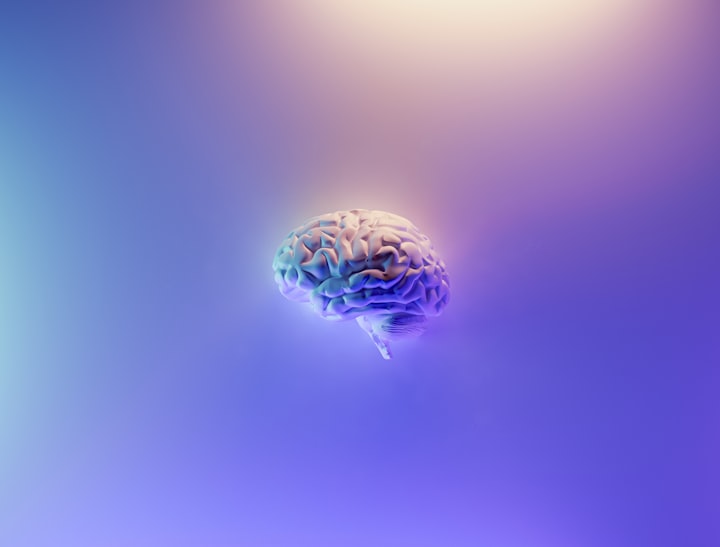10 Complications of Alcohol Withdrawal
Know the signs, symptoms, and complications of alcohol withdrawal before it's too late.

Right now, the media is focused on the "War on Drugs;" however, there is another epidemic that has been going on around the world for a very long time. Right now, in the US alone, about 14 million adults are struggling with alcohol use disorders or are alcoholics. When you crunch the numbers, that is one out of every 13 people.
Alcohol withdrawal occurs when a person is addicted to alcohol, meaning they drink it on a daily basis and then suddenly halt consumption of the substance. One scary statistic is that 50 percent of the alcohol consumed in the US is consumed by only 10 percent of drinkers.
As with illnesses, not all people going through withdrawal will experience the same symptoms. Some may experience more mild or fewer symptoms, while others may exhibit more extreme issues. Oftentimes, these complications will begin shortly after the person begins sobering up. Typically, a person will experience symptoms for a few days and they will resolve on their own.
Complications of alcohol withdrawal can be both mental and physical. The symptoms are quite general, and could be attributed to a number of health conditions, or even be a result of heavy drinking (like a terrible hangover). The way you can determine if someone is suffering from alcohol withdrawal is by way of how they came to experience these symptoms. Alcohol withdrawal will occur when someone who is a heavy drinker either completely stops or dramatically reduces their consumption. Let's dive a little deeper into the complications of alcohol use disorder.
Acute Alcohol Withdrawal

Photo courtesy of Unsplash
Acute alcohol withdrawal is the more sudden and severe alcohol withdrawal symptoms, which include seizures, delirium tremens, neuropsychiatric disturbances, and cardiovascular complications, as well as a condition known as Wernicke-Korsakoff syndrome. A person experiencing acute alcohol withdrawal should be brought to a hospital, due to the fact that these symptoms can be life threatening.
Post acute withdrawal symptoms are those that last longer than the initial bout of alcohol withdrawal, and can be present for up to a year. The long-term symptoms can make it more difficult for those recovering from alcohol addiction, and sometimes lead to relapse. They include irritability, low energy, anxiety, trouble sleeping, dizziness, and delayed reflexes. You will notice that some of these symptoms are the same present during alcohol withdrawal.
Sleep Disturbances
Sleep disturbances are a symptom of acute alcohol withdrawal. When a person drinks alcohol and then goes to sleep, it typically reduces the quality of sleep, preventing them from experiencing a restorative sleep which will improve memory and learning. REM sleep is disturbed by even trace amounts of alcohol. Therefore, the long-term consumption of alcohol can lead to long-term sleep disorders.
Insomnia is a sleep disturbance reported by many suffering from alcohol use disorder, but often continues into alcohol withdrawal. Other sleep disturbances reported include frequently waking, restlessness, and night tremors. Another serious complication experienced by alcoholics is that they sometimes stop breathing while asleep.
Delirium Tremens

Photo courtesy of Unsplash
Delirium Tremens, or alcohol withdrawal delirium, is the most severe kind of alcohol withdrawal, but it is rare and occurs in a low percentage of people. DT occurs in those who have been heavily drinking on a regular basis over a period of years, and happens between one and four days after acute withdrawal has begun. Symptoms of Delirium Tremens can come on suddenly.
The signs of this condition include hyperactivity of the automatic nervous system, and hallucinations. This often occurs when alcoholics are hospitalized for medical treatment, such as scheduled surgery, and therefore suddenly stop heavily drinking and go through withdrawal.
Hallucinations
Hallucinations are some of the more severe alcohol withdrawal symptoms, taking place when a person is going through acute alcohol withdrawal. Typically, they occur 12 to 24 hours after the person has stopped drinking. Only a small percentage of those experiencing withdrawal will have them; but if they do, they are also likely to have confusion, high blood pressure, fever, heart palpitations, and heavy sweating along with them.
When it comes to severe cases of alcohol withdrawal, it is not uncommon for users to hear, see, and imagine they feel things. For those who are not experiencing DT, this occurs in three to ten percent of those experiencing alcohol withdrawal.
Depression

Photo courtesy of Unsplash
For those who experience depression, alcohol and depression can be a seemingly endless cycle. About 40 to 60 percent of those experiencing depression turn to alcohol as a result. This is pretty scary considering the amount of people who suffer from depression.
Depression can cause alcohol abuse and alcoholism, and alcoholism can cause depression. Feelings of depression are seen in those under the influence of alcohol, as well as those withdrawing from alcohol. Alcohol is a depressant, and it does increase the risk of suicide by 15 percent. Depression can often emerge during alcohol withdrawal, and may continue afterwards.
Nausea or Vomiting
Nausea or vomiting is one of the less severe and more frequent symptoms of alcohol withdrawal syndrome. It typically will last up to eight hours. This is not usually a cause for much concern, and will resolve itself on its own after a few hours, but serious damage can be done to your stomach lining and throat as a result of excessive vomiting.
Anxiety

Photo courtesy of Unsplash
Alcohol can initially reduce anxiety, and, therefore, is used by many for this. However, over time, it will lead to an increase in a person's anxiety levels. Anxiety is one of the most common and less severe symptoms of alcohol withdrawal.
Anxiety will likely be accompanied by physical symptoms, including heart palpitations and difficulty breathing.
Irregular Heartbeat
Rapid heartbeat is one of the more severe symptoms of alcohol withdrawal. Studies actually show that moderate drinking can increase chances of irregular heartbeat. There is also a suspected link between alcohol withdrawal and death by heart attack; however, this has not been studied enough for it to be proven.
Protracted Withdrawal Syndrome

Photo courtesy of Unsplash
This syndrome follows alcohol withdrawal and can last for up to a year. Many of the symptoms of protracted withdrawal syndrome are the same as those experienced during alcohol withdrawal; including tremors, anxiety, depression, and sleep disturbance. The only distinguishing factor is the fact that these effects can go on for so long, indicating that they are part of protracted withdrawal syndrome rather than acute alcohol withdrawal.
Seizures
Seizures are severe, and are usually a symptom of acute alcohol withdrawal. Most of the time, seizures occur within one or two days after a person ceases alcohol consumption. If a seizure begins with one body part twitching, it typically means that there is another disorder present, and this person should be seen by a doctor. Those who have gone through alcohol withdrawal before are more likely to have seizures, and this likelihood increases with each time a person experiences withdrawal.

Photo courtesy of Medical News Today
It is important to increase awareness about the severity of alcohol abuse and alcoholism, as well as the ensuing complications of alcohol withdrawal. Those who drink alcohol on a regular basis (more than one drink per day for women, and two drinks a day for men) can be at risk of developing alcohol abuse and alcoholism.
In addiction treatment centers, alcohol withdrawal will be treated with therapy, such as support groups, as well as medications to reduce seizures, anxiety, and cravings.
It is not recommended that alcoholics stop drinking suddenly because of these side effects, but instead seek treatment with a doctor or treatment center. The safest place for the treatment of alcohol withdrawal is a hospital, but people can also be treated in outpatient settings.
If you or someone you know has a problem with alcohol and lives within the US, the number for the National Helpline for Substance Abuse and Mental Health Services Administration (SAMHSA) can be found here:
1-800-662-4357
About the Creator
Ringo Mendoza
Wants to be a DJ but too anxious. Spends too much time on social media and can name most cheese by smell alone, for some reason.






Comments
There are no comments for this story
Be the first to respond and start the conversation.